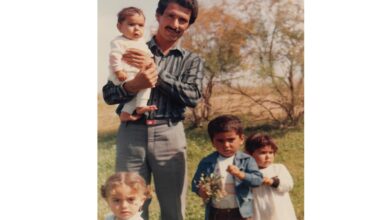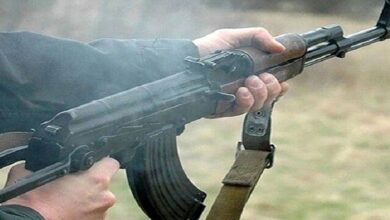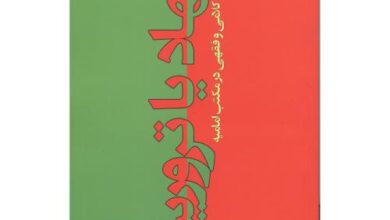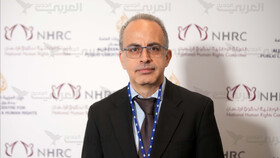Seyed Hossein Mousavian , a prominent researcher at Princeton university, has written an article concerning the relationship between terrorism and its supporters.
(Jul 21, 2016)
France has unfortunately been the epicenter for two terrorism-related events in recent weeks. The tragic truck attack in Nice, which received international attention, and a rally recently held in Paris by a notorious Iranian opposition group — the “Mujahedin-e Khalq,” or MEK, which for years has committed acts of terrorismagainst Iran. While it might not be immediately evident, there is a connection between the events — the groups behind them have been accused of atrocities and have historical ties to Saudi Arabia.
Both the MEK and the self-proclaimed Islamic State, which claimed the attack in Nice, are groups with a history of terrorism, and both, in some way or another, are influenced by the kingdom.
MEK’s Terrorism in Iran
While the group no longer has the distinction of a terrorist group in the United States, in Iran the MEK is still very much a perpetrator of terror.
After the Iran-Iraq War, the MEK resided in Iraq and took on the role of Saddam’s henchmen. An October 1994 Wall Street Journal report quoted a Clinton administration official as saying, “Saddam looked on the Mujahedeen as more loyal than some of his own army units.” After the 1991 Persian Gulf War, Massoud Rajavi lambasted the U.N. coalition that pushed Saddam out of Kuwait, stating, “Iranian national movements and their masses strongly denounce the Iranian regime’s alliance with U.S. imperialism, world Zionism, and regional reactionaries to launch aggression against Iraq.”
In recent years, Iranian nuclear scientists have been assassinated — in some cases murdered while driving to work. MEK is thought by many to be involved in these attacks, perhaps with the assistance of Israel. According to a 2012 NBC News report, Israel was “training MEK members” to carry out the killings. The group has also been held responsible for an April 2000 assassination attempt on the leader of the Iranian policy making center for the war in Iraq.
Mourners carry the coffin of an Iranian nuclear scientist on January 13, 2012. Some believe MEK is involved in the deaths of the nuclear scientists. (Atta Kenare/Getty Images)
Saudi Arabia and ISIS
It has long been evident to the global community that Saudi Arabia is a benefactors of Islamist militant groups, including likely the group that evolved into ISIS. Many U.S. officials have publicly acknowledged this reality. Even former U.S. Secretary of State Hillary Clinton stated at the Brookings Institution last year that, “Much of the extremism in the world today is the direct result of policies and funding undertaken by the Saudi government and individuals.” A recent British parliament report also stated that it is “very likely” that individuals close to the royals of the Arab monarchies of the Persian Gulf have donated money to ISIS, though it is unclear how directly those funds have been given. Historically, too, the ideology of the group has ties to Saudi Arabia’s own identity via Wahhabism.
While ISIS wreaks havoc on the world with its global acts of terror, the MEK ravages Iran. In much the same way ISIS is a twisted offspring of the Sunni world that has ravaged, among others, Sunni-populated areas, the MEK is its counterpart for Iranians in the Shia world. Iranians thus expect the world community to confront the MEK just as it confronts ISIS. At the very least, the group should not be hosted by countries like France and endorsed by Saudi Arabia. In the fight against terrorism, European and Saudi leaders should know better than to distinguish between “good” and “bad” terrorism, or tolerate any form of terrorism in the service of cheap geopolitical gains.
The Nice truck slaughter — indeed the slaughtering by ISIS in general — and the MEK’s killing of thousands of Iranians are both worthy of our attention and condemnation.
In light of the Nice terrorist attack, the international community should also view the threat from other groups such as the MEK and Daesh as an interconnected phenomenon. Thescourge of terrorism currently threatening the whole world can only be alleviated if it is addressed in a holistic way. The Nice truck slaughter — indeed the slaughtering by ISIS in general — and the MEK’s killing of thousands of Iranians are both worthy of our attention and condemnation. The territory the perpetrators of such violence use to plan and launch attacks, as well as the flow of cash, equipment and ideology they draw their support and influence from should all be considered as pieces of the same terrorism “puzzle.” The global terrorist threat simply cannot be solved until all these pieces are recognized as being a part of the same puzzle and dealt with in an effective and simultaneous manner. This means not only increasing security to prevent attacks, but also seriously confronting those who aid terrorism in any way — from the MEK to ISIS.





